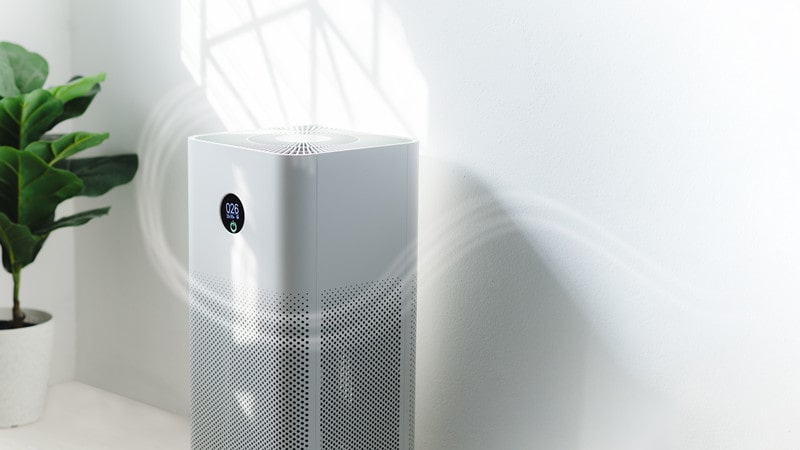Whole house humidifiers work with your home HVAC system to carefully introduce water vapor into your air ducts. They improve indoor comfort levels by balancing humidity, and they help prevent harmful germs like cold and flu viruses from spreading.
Preserves Wood Furniture and Flooring
In addition to wreaking havoc on your skin, dry air can damage your home’s wood furniture, flooring, and molding. A whole-house humidifier can help protect these items from damage and keep them in good condition. The ideal humidity level in your home is between 30 and 50%. However, most homeowners need more time or knowledge to maintain a comfortable humidity. Whole house humidifiers can make this task easy.
For instance, whole house humidifiers help you save money on energy bills. They work to create a warmer feel in your home so you can lower the thermostat setting without sacrificing comfort. This can save you a significant amount on your heating bill each month.
Humidifiers also prevent your wood items from cracking and splintering. This helps you preserve your expensive wood furniture and floor. Wood floor specialists recommend keeping your wood in the home above 30% moisture for its best results.
Reduces Dry Skin
Dry air in the winter causes everything from cracked skin to itchy eyes and nose. It also wreaks havoc on your home and furnishings, such as wallpaper that peels, hardwood floors that split at the seams, and house plants that die. A whole-house humidifier adds moisture to the conditioned air blown through your ventilation system.
Unlike portable models, which can only distribute moisture in one room at a time, a whole-house model is directly connected to your HVAC blower fan, adding water vapor to the indoor air as it passes over your heating vents. Humidifiers continuously balance indoor humidity levels, reducing energy consumption while maintaining comfort.
In addition, because warm air holds more moisture than cool air, humidifiers allow homes to feel warmer at lower temperatures, meaning you can keep your thermostat set a little higher in the winter and save on utility bills.
Reduces Illnesses
A humidifier reduces allergy and asthma triggers like dust, mold, and pollen. They can also lessen the effects of cigarette smoke, pet dander, and other respiratory issues. These pollutants thrive in dry conditions but dissipate or are eliminated by adding moisture to the air.
If your family members suffer from frequent coughs, runny noses, sinus congestion, or itchy skin, they probably live in a home with too little humidity. Adding a whole-house humidifier to your heating system can quickly remedy the situation, making your household feel healthy and comfortable again.
According to Cleveland Clinic, humidifiers keep indoor humidity levels in the 30% to 50% range, which has proven health benefits. The right amount of moisture in the air reduces airborne contaminants that cause allergies, asthma, and flu germs, as well as symptoms such as itchy skin, dry lips, sore throats, and excessive thirst. As an added benefit, a humidifier reduces static electricity, which can be a safety hazard for young children and pets.
Increases Energy Efficiency
A whole-house humidifier attaches to your forced air system to distribute water vapor throughout the house. It is a great option for people who need help maintaining healthy indoor air quality and are looking for convenience. It’s also a much better solution than portable devices, which can only be used in one room.
Dry winter air causes problems, including itchy skin, irritated sinuses, and cracked lips and fingers. It can aggravate allergies and asthma symptoms, cause static electricity that shocks household appliances, and even damage clothing and draperies. A humidifier adds moisture to the air to eliminate these problems and prevent static electricity from occurring.




